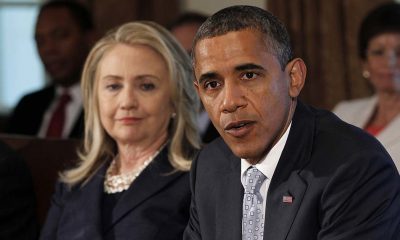Feature
Microsoft sues Indian company for technical support scam

New York: Some international fraudsters are exploiting the tech-savvy reputation of Indians to trick computer users into giving them access to their machines by pretending to be from Microsoft. Now the technology giant is fighting back suing several companies, including an Indian one, alleging they falsely claimed to be Microsoft-affiliated technical support.
“In its first big strike against technical support scamming companies, Microsoft’s Digital Crimes Unit (DCU) filed a civil lawsuit in federal court in the central district of California against Omnitech Support and related entities for unfair and deceptive business practices and trademark infringement,” a Microsoft spokesperson told.
One of the companies named in the case filed recently is C-Cubed Solutions Private Limited, which the court papers said is “a private business company formed under the laws of India” that operates the mail server through which “fraudulent technical support businesses communicate with customers”.
Microsoft’s suit said that 3.3 million Americans fall victim to technical support scams every year and lose $1.5 billion.
Describing the fraud, senior Microsoft attorney Courtney Gregoire wrote in a company blog, “These scammers claim to find non-existent computer viruses and infections then con people out of their hard-earned money for bogus tech support, in addition to stealing personal and financial information or even installing new malicious software.” Microsoft has received over 65,000 complaints about such scams since May, she wrote.
The court papers specifically mention alleged frauds using web sites and phone numbers from the sites leading to scammers that Microsoft said it had investigated.
Many people in the US have reported receiving telephone calls – in several instances from persons speaking with an Indian accent and using Indian names – claiming to be from Microsoft or a related organisations and saying a problem has been discovered in their computer.
In a typical call a person identifying himself as “Raj” from Microsoft called from a number with a Washington, DC, telephone area code and claimed that the company had identified a problem with the computer. Asked in one instance how he knew about the problem and if he had hacked the computer, “Raj” said he had. When he was told that hacking was a crime, he hung up.
Unwary computer users who take the bait are asked to visit a web site or to download a program, which will introduce a malware that can collect information like logons and financial data or be used to spread the malware. The information collected can be used for identity theft. In other cases, they ask for remote access to the computer and demand credit card numbers to collect their fees.
According to Snopes, a website that tracks internet misinformation and fraud, people in several countries, including Canada, Australia, New Zealand, Ireland, and England, have received such calls.
Microsoft’s lawsuit filed Dec 18 names three companies, besides C-Cubed Solutions, and two individuals. It said that Marc Haberman, Rachel Eilat Haberman, and Jay Wurzberger were among C-Cubed Solutions’ directors.
The main reason for the alleged scammers’ success, the suit said, “is that they create an impression that they represent or have an association with Microsoft”. Through this they divert “consumers from identifying and contacting a legitimate technical service provider for their service needs”, the complaint added.
“Consumers will never receive a call from Microsoft or our partners asking for a credit card number to charge for computer fixes,” the Microsoft spokesperson said. “Our guidance for consumers is to never provide your personal information to unsolicited callers and or e-mailers, and if they are having a problem with their PC, contact Microsoft customer service and support.”
The US Federal Trade Commission advised consumers, “If you get a call from someone who claims to be a tech support person, hang up and call the company yourself on a phone number you know to be genuine. A caller who creates a sense of urgency or uses high-pressure tactics is probably a scam artist.”
Entertainment
Meghalaya Reserves Legalized Gambling and Sports Betting for Tourists

The State Scores Extra High on Gaming-Friendly Industry Index
Meghalaya scored 92.85 out of 100 possible points in a Gaming Industry Index and proved to be India’s most gaming-friendly state following its recent profound legislation changes over the field allowing land-based and online gaming, including games of chance, under a licensing regime.
The index by the UK India Business Council (UKIBC) uses a scale of 0 to 100 to measure the level of legalisation on gambling and betting achieved by a state based on the scores over a set of seven different games – lottery, horse racing, betting on sports, poker, rummy, casino and fantasy sports
Starting from February last year, Meghalaya became the third state in India’s northeast to legalise gambling and betting after Sikkim and Nagaland. After consultations with the UKIBC, the state proceeded with the adoption of the Meghalaya Regulation of Gaming Act, 2021 and the nullification of the Meghalaya Prevention of Gambling Act, 1970. Subsequently in December, the Meghalaya Regulation of Gaming Rules, 2021 were notified and came into force.
All for the Tourists
The move to legalise and license various forms of offline and online betting and gambling in Meghalaya is aimed at boosting tourism and creating jobs, and altogether raising taxation revenues for the northeastern state. At the same time, the opportunities to bet and gamble legally will be reserved only for tourists and visitors.
“We came out with a Gaming Act and subsequently framed the Regulation of Gaming Rules, 2021. The government will accordingly issue licenses to operate games of skill and chance, both online and offline,” said James P. K. Sangma, Meghalaya State Law and Taxation Minister speaking in the capital city of Shillong. “But the legalized gambling and gaming will only be for tourists and not residents of Meghalaya,” he continued.
To be allowed to play, tourists and people visiting the state for work or business purposes will have to prove their non-resident status by presenting appropriate documents, in a process similar to a bank KYC (Know Your Customer) procedure.
Meghalaya Reaches Out to a Vast Market
With 140 millions of people in India estimated to bet regularly on sports, and a total of 370 million desi bettors around prominent sporting events, as per data from one of the latest reports by Esse N Videri, Meghalaya is set to reach out and take a piece of a vast market.
Estimates on the financial value of India’s sports betting market, combined across all types of offline channels and online sports and cricket predictions and betting platforms, speak about amounts between $130 and $150 billion (roughly between ₹9.7 and ₹11.5 lakh crore).
Andhra Pradesh, Telangana and Delhi are shown to deliver the highest number of bettors and Meghalaya can count on substantial tourists flow from their betting circles. The sports betting communities of Karnataka, Maharashtra, Uttar Pradesh and Haryana are also not to be underestimated.
Among the sports, cricket is most popular, registering 68 percent of the total bet count analyzed by Esse N Videri. Football takes second position with 11 percent of the bets, followed by betting on FIFA at 7 percent and on eCricket at 5 percent. The last position in the Top 5 of popular sports for betting in India is taken by tennis with 3 percent of the bet count.
Local Citizens will Still have Their Teer Betting
Meghalaya residents will still be permitted to participate in teer betting over arrow-shooting results. Teer is a traditional method of gambling, somewhat similar to a lottery draw, and held under the rules of the Meghalaya Regulation of the Game of Arrow Shooting and the Sale of Teer Tickets Act, 2018.
Teer includes bettors wagering on the number of arrows that reach the target which is placed about 50 meters away from a team of 20 archers positioned in a semicircle.
The archers shoot volleys of arrows at the target for ten minutes, and players place their bets choosing a number between 0 and 99 trying to guess the last two digits of the number of arrows that successfully pierce the target.
If, for example, the number of hits is 256, anyone who has bet on 56 wins an amount eight times bigger than their wager.























